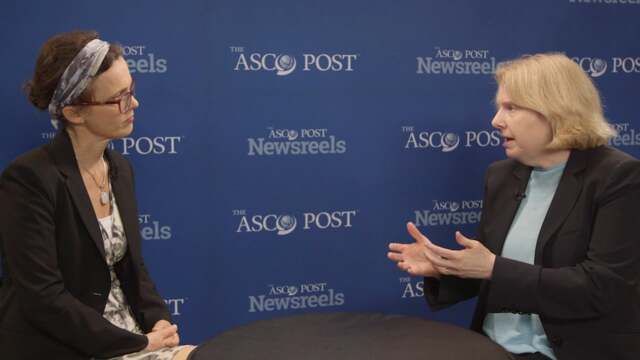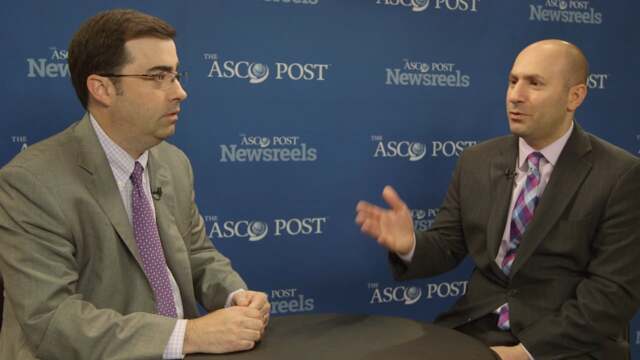Jonathan E. Rosenberg, MD, and Toni K. Choueiri, MD, on Bladder Cancer: Mutation Burden and Atezolizumab
2016 ASCO Annual Meeting
Jonathan E. Rosenberg, MD, of Memorial Sloan Kettering Cancer Center, and Toni K. Choueiri, MD, of the Dana-Farber Cancer Institute, discuss mutation burden—its role in response to treatment with PD-L1 immunotherapy and its impact on progression-free survival and overall survival, as well as the link between intrinsic expression subtypes and treatment outcome with atezolizumab (Abstract 104).
Eric Roeland, MD, of the University of California, San Diego, and Timothy E. Quill, MD, of the University of Rochester Medical Center, discuss the debate on whether physician-assisted death should be a legally available option at the end of life when neither palliative nor hospice care is satisfactory.
The
Helen MacKay, MD, of the Sunnybrook Odette Cancer Centre, and Ursula A. Matulonis, MD, of Dana-Farber Cancer Institute, discuss findings from this phase II study of intraperitoneal vs intravenous chemotherapy following neoadjuvant chemotherapy and optimal debulking surgery in patients with epithelial ovarian cancer (Abstract LBA5503).
Helen MacKay, MD, of the Sunnybrook Odette Cancer Centre, discusses findings from this phase II study of intraperitoneal vs intravenous chemotherapy following neoadjuvant chemotherapy and optimal debulking surgery in patients with epithelial ovarian cancer (Abstract LBA5503).
David F. McDermott, MD, of Beth Israel Deaconess Medical Center, and Toni K. Choueiri, MD, of the Dana-Farber Cancer Institute, discuss an update on data from phase I and II studies of nivolumab given to patients with metastatic renal cell carcinoma, including long-term overall survival and potential predictors of benefit (Abstract 4507).
Hope S. Rugo, MD, of the University of California, San Francisco, discusses phase III study results on a new possible alternative to trastuzumab for HER2-positive metastatic breast cancer: the biosimilar known as Myl-1401O (Abstract LBA503).





